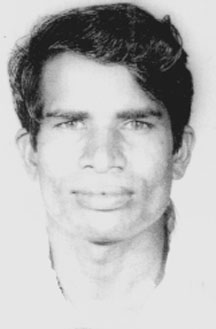Arjune Kairool, known as ‘Beta’, has been farming for practically his whole life.
In his adopted community of Nismes, West Bank Demerara, at just age 15 he realized that farming had become an important part of his life.

While still a minor, he had the challenging task of taking the cows to pasture, watching them graze, and returning them to the fold in the evening.
`Beta’ recalls shepherding the animals to rich pasturelands but restraining them from straying onto the rice cultivation of farmers and destroying their crops.
However such transgressions drew corporal punishment and monetary penalties. He remembers sadly that in cases where he was found negligent his parents had to pay from their pockets for damage while he suffered a severe belting on his buttocks.
His parents had about 40 or 50 head of cattle and each one demanded diligent care. He had at times to bathe the cows after they ventured into swamps or wallowed in muddy ponds.
Of course `Beta’ and his friends ensured that they had fun amidst the farming chores. `Beta’ says it was not unusual for them to enjoy themselves while grazing or milking the cows.
Meanwhile, in the kitchen garden which became a must in their household, Beta became quite knowledgeable in cultivating tomatoes, bora, ochro, boulangers and calaloo, among other crops.
But the production of the kitchen garden was just one aspect of the operation. In addition to the kitchen garden, he had a two-acre farm almost since he was a boy.
Generally, plantain or banana suckers were planted as well as roots of eddoes and cassava. Many of the farmers in this area reared livestock as well as managed rice cultivations.
`Beta’ observed that cultivating rice some years ago had a unique social advantage in the absence of modern equipment. He noted that when farmers had to utilize the grass knife in reaping, the process featured family collaboration as mothers, sisters and all others joined with fathers and sons to manage the manual reaping of the crop.
But he is not too happy with today’s reaping by combine since he said that a significant amount of the crop is lost in harvesting the paddy in the field.





